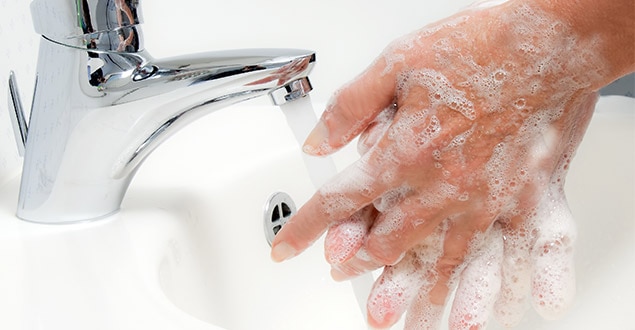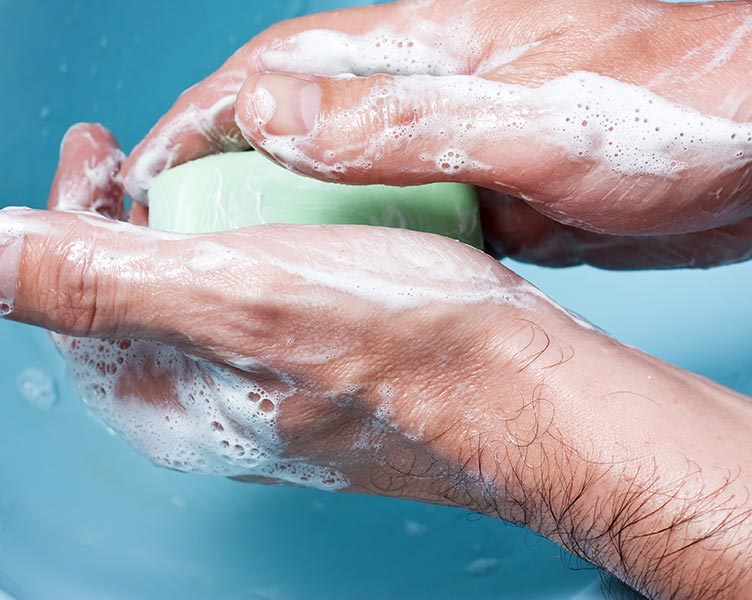Samantha: I always carry baby wipes with me to clean myself. I prefer those to toilet paper. I always wash my hands before and after catheterizing. I feel like clean hands are key to maintaining a healthy bladder.
Even though using a single use intermittent catheter may reduce the likelihood of infection compared to indwelling catheters, it is still essential that you maintain good hygiene as urinary tract infections can still occur.
Wash your hands
Soap and water and/ or an antibacterial hand gel can be used if you are away from home and in a place where water is not available.
Cleanse genital area
This should be done by wiping the area from front to back. Mild soap and water (or a pre-moistened cleansing towelette) is all that is required. Dry with a clean pad or towel. Do not touch anything else-except for your catheter after you washed your hands – and only touch the body parts that are meant to be touched to perform catheterization.

What if I’m in a public bathroom?
The same rules of hygiene apply everywhere – both at home and on the go. If you need to touch anything after you wash your hands (e.g. if you use a wheelchair, you may touch the door or the hand rims) it’s important to use hand-sanitizing gel or wash your hands again.
How often should I discard my catheter?
According to international guidelines*, it is recommended to use a new sterile catheter for each time you perform intermittent catheterization. The overall goal for one time use of intermittent catheters is to help maintain bladder health and minimize the potential for bacteria overgrowth in the bladder, as this may lead to complications such as urinary tract infections.
*Effective April 1 2008, the Medicare policy on intermittent catheters changed. The Medicare policy provides one new sterile intermittent catheter (and one sterile package of lubricant- if needed) for each catheterization. Most insurance plans follow the medicare guidelines, however, the amount of catheters you are allowed each month under your insurance plan may vary according to your individual benefit under your healthcare plan.
Effective hand washing
You should wash your hands both before and after using your intermittent catheter to help prevent urinary tract infections (UTI’s). As a catheter user, it is especially important to wash your hands correctly and frequently, to avoid the transfer of germs to your catheter or your body. A catheter can pick up bacteria and push the bacteria into the bladder.
Watch the instruction videos on how to insert a catheter (male and female), where optimal hygiene before and after is introduced. You’ll find them in our “How to use different products” theme.
Always remember that users performing self-catheterization should follow the advice of their physician.
These are general guidelines meant to help you with typical questions. You should follow the specific instructions provided by your healthcare provider and the intermittent catheterization solution you are using.



